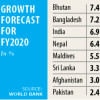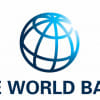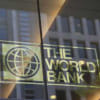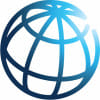Ajay Banga’s plateful of challenges

The world is going through several challenges including the fallout from the Covid pandemic, the Russia-Ukraine war, soaring inflation, and climate emergencies. Despite decades of progress, we are now in a situation where growth and poverty reduction have slowed down. Climate change has exacerbated these problems as millions of lives face displacement, poverty, and hunger.
The new World Bank (WB) president pick, Ajay Banga (who is set to take over on June 2, 2023) will have to address these emerging issues and the existing ones, as expectations from the world's largest multilateral bank are high. Indeed, the Indian-American businessman and former CEO of Mastercard has a lot on his plate.
One of the first things Banga would have to tackle is reforming and modernising the institution, something that stakeholders have asked for across sectors. For a long time, member countries have been urging for designing the WB as a fit-for-purpose institution. The reason behind this is that the 20th century organisation cannot address 21st century issues as their nature, dimension, extent, and scale have changed a lot. So, solutions have to be changed radically from what they would have been 80 years ago.
The WB has recently published "Evolution of the World Bank Group: A Report to Governors," which aims to propose ways to enhance its mission and strengthen its operating model. While this is a welcome move, reforms have to go much deeper in order to deal with multidimensional problems that pose existential threats to our world.
Against current geo-economic and geopolitical realities, the World Bank's programmes should be much more comprehensive in order to capture the interconnectedness of developmental and other sectoral goals. The magnitude of problems requires not just the addition of new issues on the programme list, but the integration of these issues in the overall mission and operating model of the organisation.
Against current geo-economic and geopolitical realities, the World Bank's programmes should be much more comprehensive in order to capture the interconnectedness of developmental and other sectoral goals. The magnitude of problems requires not just the addition of new issues on the programme list, but the integration of these issues in the overall mission and operating model of the organisation.
Take the example of climate change. The World Bank's efforts in this case have been fraught with limitations. At the leadership level, the inertia in recognising the severity of the problem and guiding the climate action agenda holistically has been absent so far. This limitation is reflected in the country offices of the WB. There are some initiatives by the organisations on climate change at the country level. However, those are still "add-ons" to the overall programme. They are not designed as part of the overall development programme of each country office. Hence, these programmes are implemented on a piecemeal basis. The country-level programmes are often not aligned with national goals on climate change, either. There are, of course, the Country Climate and Development Reports of the World Bank, which aim to guide countries on how their national development priorities can be aligned with international climate goals. But the inclusiveness in consultation while designing programmes is limited to only a select few stakeholders.
Several climate-vulnerable and poor countries do not have the capacity to design their own programmes and have to accept what is offered to them. So, programmes need to be packaged with capacity development in mind. Also, the continuity of programmes is crucial as climate programmes must be ongoing and will continue to impact people's lives and livelihood. The investment requirements for climate issues are massive and the WB must play the catalytic role to mobilise the incremental resources from various sources.
For climate change issues, Banga will have to make tough choices in order to create a radical shift in the way the World Bank Group (WBG) funds projects. Among the five WBG institutions – namely the International Bank for Reconstruction and Development (IBRD), International Development Association (IDA), International Finance Corporation (IFC), Multilateral Investment Guarantee Agency (MIGA), and International Centre for Settlement of Disputes (ICSID) – some have been accused of continuing to finance fossil fuel-based projects even after the Paris Agreement. Hence, the WBG has to be transparent and accountable in regards to direct and indirect energy financing, the emissions due to such investments, and their impact on the community.
While focusing his attention on climate crises, there is no scope for the new World Bank president to shy away from other difficult issues such as fighting poverty, tackling inequality, and reducing the debt burden of low- and middle-income countries. New and additional resources should be generated to confront the existing and new challenges. The mounting debt crisis in several countries must be addressed, too. Debt as a percentage of countries' gross national income (GNI) has increased significantly during the last decade. Countries in Sub-Saharan Africa, Latin America, the Caribbean, the Middle East, and North Africa have experienced a sharp increase of their debt-GNI ratio during 2010-2021. And though South Asia has seen only a two percent average increase of its debt-GNI during this period, countries such as Pakistan and Sri Lanka are facing difficulty due to high debt.
The G20's "Independent Review of MDBs' Capital Adequacy Frameworks" launched last year called for improving the balance sheets of multilateral development banks and making lending restrictions flexible and affordable for lower-income countries so that they can recover from the pandemic and achieve the Sustainable Development Goals. To match this, the WB needs to mobilise private-sector finance to meet both developmental and climate goals.
As part of its reform, the efficiency of the WB itself needs to be invigorated. The processing time for projects is lengthy as bureaucratic requirements are high and so are the transaction costs. This may discourage countries from borrowing from the WB to invest in infrastructure. The institution has to find ways to eliminate such limitations without compromising on the standards and quality of the bureaucratic process. Coordination with other multilateral institutions is critical for priority-setting so that resources are allocated and used efficiently, without duplication of programmes. Such collaboration has to be initiated from the top levels, which can help overcome institutional rivalry.
Therefore, the new president of the World Bank will be settling into the hot seat during a turbulent period in a new world. His task is not only to consolidate what has been achieved so far, but to also help the institution evolve into one that can face the ongoing crises. Member countries await to see how well Ajay Banga can live up to their expectations.
Dr Fahmida Khatun is executive director at the Centre for Policy Dialogue. Views expressed are the author's own.

 For all latest news, follow The Daily Star's Google News channel.
For all latest news, follow The Daily Star's Google News channel. 










Comments